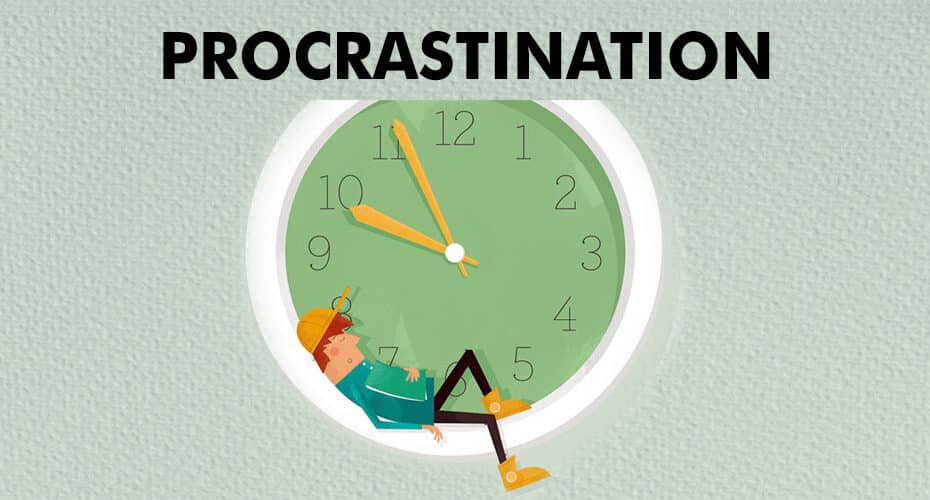In my last blog, I focused on the reasons why women with ADHD procrastinate. Through understanding the causes, we can then better approach solutions for ADHD procrastination and that prompts you to procrastinate. As you went through these indicators, you thought of which ones apply most to your own life. For many women with ADHD, we often feel like we have lost before the battle has even begun. As a result, we fail to see the point in even trying to change things. In this frame of mind, though, what you have done is simply let ADHD procrastination win. ADHD procrastination wins when you give up and think that you simply can’t do anything to change how you approach or begin tasks. The reality is that this couldn’t be further from the truth. There actually exist several causes of ADHD procrastination. Additionally, no matter the cause, you actually have many resources for different ways to get at and resolve ADHD procrastination. Try any of the tips below to get you back on track
Get rid of making a big deal out of something- One of the biggest reasons women with ADHD procrastinate is because we tend to make a big deal out of something that doesn’t need to be. This can be related to how tough or boring it will be to complete the task; whatever the case, the underlying theme is that doing the task will be unbearable. Procrastination, on the other hand, is associated with stress—think of the stress you feel when you avoid making a phone call you know you need to make. So, keep things in perspective: “Sure, this is not my favorite task, but I can get through it.”
Focus on your “why.”- When women with ADHD procrastinate more on short term gains (avoiding the distress associated with the task), as opposed to long-term results (the stress of not doing it, as well as the consequences of avoiding this task). Instead, try focusing on why you are doing this task: What are the benefits of completing it? If you’ve been putting off cleaning out a closet, imagine walking into the closet when it is decluttered and how good that will feel. And consider how much money you will make by selling the items on eBay, or how those in need will feel when they receive these items as donations.
Put it on your calendar – Projects that will get done “when I have time” (as in “I will do it when I have time”) tend not to get done very often, if ever. It is best to put the task on your schedule for when you are going to work on it and block out that time as if you were doing something else that is just as important. And when it is time to do your work, set a timer so you can be focused for the entire allotted time.
Be realistic- As you establish when you are blocking off the time to do a specific task, it is important to think about how long this task or project will take so it is important to add in some extra time. And look for ways to make it easier on yourself: If, for example, you are not morning person, don’t expect yourself to get up an hour early to start cleaning out your closet that you have been putting off for months. It might be better to schedule that activity during lunch or before dinner.
Break It Down into Small Steps-When a task seems overbearing, procrastination often follows. So how can you break that task into smaller, more manageable parts? .
Accountability- When you establish specific deadlines for certain tasks it is helpful to find someone who will help you be accountable. It could be a promise to a friend, family member or co-worker that you will complete the job by a certain date. In this relationship, you connect with someone (on the phone, for example) at certain time intervals (such as once per week) and commit to what you will do before your next meeting. Not wanting to go back on your word, this can be a great way to squash procrastination. (Note: In an effort to save your relationship with your significant other, I recommend this person not be your partner. You don’t want a lack of follow-through to cause tension between you.)
Be aware of Your distractions– Having distractions while you are working on a task can hinder your productivity. Beware especially of technology, such as your email or messenger that keeps pinging to let you know someone has reached out. Social media, internet “research” that leads you far off track, and phone calls can lead to procrastination. So, try this: During your scheduled block of time for working on a particular task, close your email and IM, turn off your phone (or at least set it on “Do Not Disturb” and put it out of sight), and don’t let yourself get on the web until you have completed the task, or hold off any necessary internet searches until the end.
Reward yourself for finishing- Establish a reward if—and only if—you do what you set out to do. Do not let yourself binge that new Netflix show, check your social media, or get lunch until you complete what you’ve scheduled. So instead of using these tasks and distractions to procrastinate, make them contingent on you actually finishing what you schedule yourself to do.
